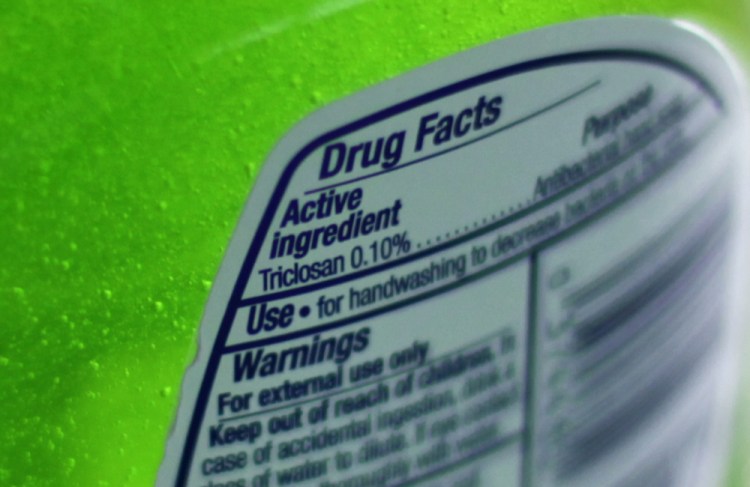Researchers at the University of Maine will study the effectiveness of a chemical in antibacterial soap to determine whether it is damaging to human cells in the skin and many other organs.
Assistant Professor Julie Gosse said a recently-awarded $420,000 grant from the National Institutes of Health will pay for graduate and undergraduate students and supplies for the three-year research program.
Gosse said the chemical triclosan is being added to many over-the-counter products advertised as antibacterial, such as soaps, toothpaste, body washes and facial cleansers. The chemical is also used in fabrics and plastics to help prevent mold growth, and has become so common that it’s now in the water supply.
“This is not a chemical people need to have every day,” Gosse said.
Gosse said she is not saying that triclosan might not have some benefits in a hospital setting or for other uses, such as treatment of eczema or skin allergies. But Gosse said triclosan is not necessary for everyday use.
Previous research by Gosse for the University of Maine that was completed in 2012 shows that triclosan may inhibit the functioning of mast cells, which help fight bacterial infections and cancer cells.
Gosse said the new research will “drill down” and try to find out what’s causing the triclosan to inhibit the functioning of the mast cells. She said researchers will use a high-resolution microscope invented by University of Maine physicist Sam Hess to study how human and animal cells interact with triclosan.
She said there has been scant toxicology research on triclosan, so she hopes the program can add to the body of scientific literature on the topic. The Food and Drug Administration will be analyzing triclosan in upcoming years, and Gosse said it’s possible the University of Maine research would be one of the studies used by the FDA to decide whether the chemical will be permitted to be used in as many products as it is today.
“We’re not going to be able to resolve the public health question, but we will be one piece of the puzzle,” Gosse said.
Send questions/comments to the editors.




Comments are no longer available on this story